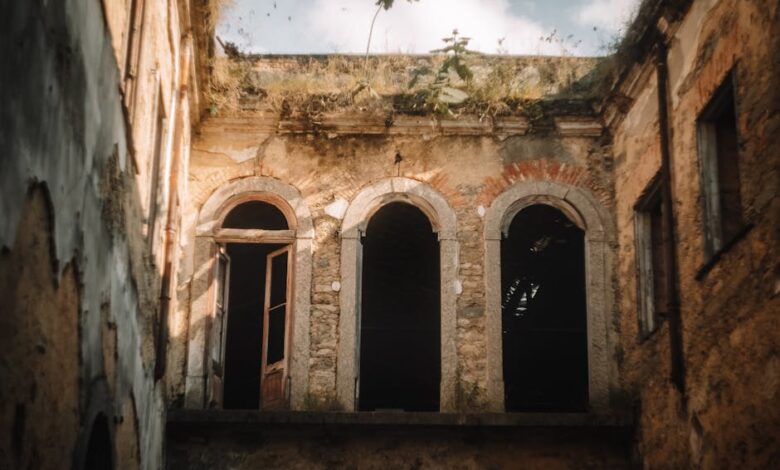The Echoes of the Past and Barcelona’s Financial Tightrope

There are some things in football that just feel right, like a classic rivalry, an underdog triumph, or the sight of Lionel Messi in a Barcelona shirt. For years, that last image was a given, an immutable law of the sporting universe. Even after his bittersweet departure, a quiet hope lingered in the hearts of millions: one day, perhaps, he would return. It’s a dream many Barcelona fans, and indeed football romantics, held onto tightly.
But dreams, as we often learn, sometimes collide with the harsh concrete of reality. Recently, Barcelona chief Joan Laporta delivered a sobering dose of that reality, unequivocally stating that a return for Messi is “not realistic.” For a fanbase still grappling with his absence, these words hit differently. It wasn’t a “maybe someday” or a “we’re working on it”; it was a definitive, almost final, pronouncement from the very top. So, what exactly lies behind this stark declaration, and what does it mean for the legendary player and the club he so profoundly shaped?
The Echoes of the Past and Barcelona’s Financial Tightrope
To truly understand Laporta’s statement, we need to rewind a few years. Barcelona’s financial woes are not new; they were, in fact, the very reason Messi was forced to leave in the summer of 2021. The club was drowning in debt, handcuffed by La Liga’s stringent financial fair play (FFP) rules, and despite all efforts, couldn’t register his new contract. It was a heartbreaking separation, not by choice, but by necessity.
Since then, Barcelona has undergone a massive restructuring effort. They pulled various “economic levers,” selling off significant assets to inject much-needed cash, allowing them to register new players and improve their squad. While these measures provided temporary relief and saw the club win La Liga, they didn’t erase the underlying structural issues entirely. The club still operates under strict FFP regulations, and every transfer, every contract renewal, is meticulously scrutinized.
A Lingering Shadow or a New Dawn?
Laporta’s current stance reflects this ongoing financial vigilance. To bring Messi back, even for a symbolic final flourish, would involve navigating a labyrinth of salary caps, transfer fees (or significant salary demands for a free agent), and registration complexities that Barcelona is simply not in a position to easily overcome. It’s not just about finding the money; it’s about adhering to the rules without compromising the club’s long-term financial health, which has been a hard-won battle.
The club is trying to build a sustainable future, nurturing young talents like Lamine Yamal and Gavi, and relying on strategic, financially sensible transfers. Injecting a massive financial commitment for a player nearing the end of his career, no matter how iconic, would be a huge gamble and potentially set them back years. It’s a tough pill to swallow for fans who want to see their hero return, but from a purely business and regulatory standpoint, Laporta’s pragmatism is undeniable.
Messi’s Inter Miami Chapter: A New Horizon
Of course, the situation isn’t just about Barcelona’s balance sheet. It’s also about Lionel Messi himself. When he left Paris Saint-Germain, there was intense speculation about his next move. Many expected a return to Barcelona, or perhaps a lucrative deal in Saudi Arabia. Instead, he chose a completely different path: Inter Miami, a club in Major League Soccer (MLS).
His move to Miami was a clear signal of a shift in priorities. After two intense years in Paris, often marked by unfair criticism and a struggle to replicate his Barcelona magic, Messi sought a different kind of challenge. MLS offers a less demanding schedule, a vibrant lifestyle in South Florida, and the chance to be a pioneer in growing football in the United States. It was a move driven by family considerations, brand expansion, and a desire for a change of pace.
More Than Just Football: Lifestyle and Legacy
At Inter Miami, Messi isn’t just a player; he’s the face of a league, a global ambassador. He’s settled, he’s scoring goals, and he’s seemingly enjoying his football in a way he hadn’t for a while. To uproot his family again, especially for what would likely be a short-term, emotionally charged return to Barcelona, seems less and less probable with each passing season. His current contract, his ongoing success, and his commitment to the Inter Miami project all point towards him seeing out his career in the USA.
The practicalities of a transfer are also significant. Even if Barcelona could miraculously make the finances work, would Inter Miami be willing to let go of their biggest asset? Unlikely, given the commercial and sporting impact he has had. Messi has found a new home, a new purpose, and has moved on. For Barcelona to realistically pursue him now would involve not just overcoming their own financial hurdles but also disrupting a settled and successful arrangement for the player.
Laporta’s Pragmatism: Building for the Future, Not Re-living the Past
Laporta’s statement, while difficult for some to hear, is ultimately a necessary act of leadership. As the president of one of the world’s biggest football clubs, his primary responsibility is to ensure its long-term stability and success. Allowing false hope to fester regarding a Messi return would be detrimental – it distracts from the current squad, impacts transfer strategy, and sets the club up for another wave of emotional disappointment.
By drawing a line in the sand, Laporta is not only managing expectations but also signaling a clear direction. Barcelona needs to continue building a competitive squad with the resources it has, focusing on sustainable growth rather than chasing romantic, financially impractical reunions. The club is moving forward, with Xavi Hernandez at the helm, a young core of players, and a distinct identity being forged.
The Enduring Legacy vs. The Path Ahead
The reality is that Barcelona has started a new chapter. Players like Robert Lewandowski, Frenkie de Jong, Ronald Araújo, and the aforementioned young talents are the stars of the present and future. While Messi’s legacy will forever be intertwined with Camp Nou, the club cannot allow itself to be perpetually defined by his absence or the hope of his return. It’s about respecting the past while vigorously pursuing a successful future.
Laporta’s pragmatism might feel cold to some, but it’s crucial for navigating the complex world of modern football. His words indicate a commitment to financial discipline and a focus on developing a competitive team that isn’t dependent on one individual, no matter how extraordinary that individual might be.
The idea of Lionel Messi returning to Barcelona will always evoke a powerful emotional response. His time at the club was unparalleled, a golden era that redefined what was possible on a football pitch. Yet, as Laporta rightly points out, dreams must yield to reality. Barcelona is on a long, arduous journey back to financial stability and sustained sporting glory, a path that requires difficult decisions and clear communication. Messi, meanwhile, is enjoying a new, fulfilling chapter of his career across the Atlantic. Both club and player have moved forward, carving out new destinies. The memories will forever be cherished, the legend will endure, but the future, for both, lies on separate, albeit equally exciting, paths.





